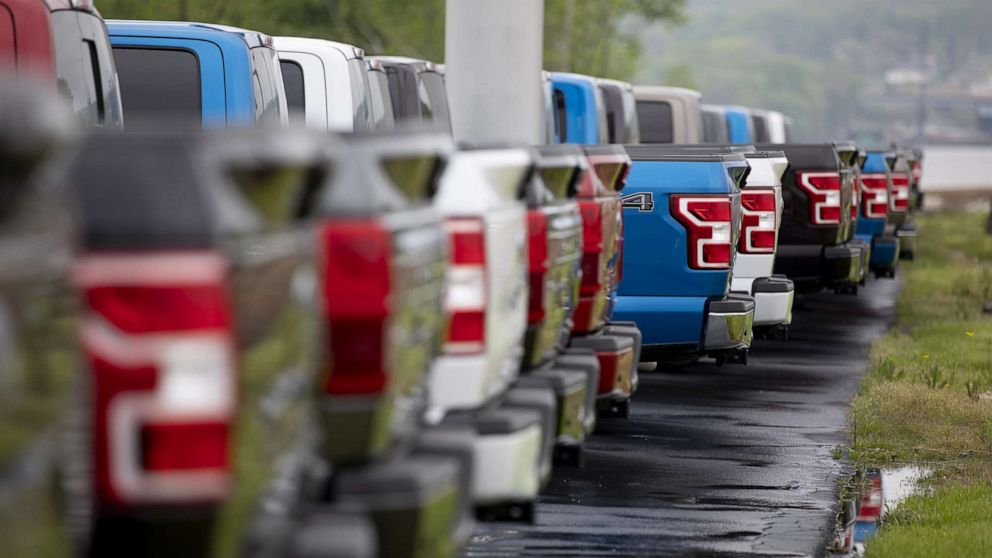The car industry survived the pandemic. Here's what the future holds
Bustling factories shut down, workers idled at home, glistening new vehicles sitting parked in vacant lots.
Now it's business as usual.
"In April we were anticipating a complete meltdown in the car business," Rory Carroll, editor-in-chief of Jalopnik, told ABC News. "That really hasn't been the case. I am very surprised at the demand for cars."
Automakers are up and running again, churning out the sport utility vehicles, trucks and sports cars that Americans are feverishly demanding. Industry insiders were expecting the worst when the coronavirus pandemic disrupted vehicle production and overseas shipments.
Analysts like Jeff Schuster, president of LMC Automotive's Americas operations and global vehicle forecasts division, are forecasting U.S. vehicle sales of 14.5 million units in 2020 versus 17 million the year before, a decline of 15%. But the damage could have been significantly worse.
"The industry and consumers have been resilient," Schuster told ABC News. "Society adapted to the pandemic much faster than expected. For the most part the industry is running at full speed since the shutdowns."
The unexpected recovery in sales was among the biggest automotive stories this year. Automakers in the spring were reporting monthly declines of 40%, prompting speculation about which would survive -- or succumb -- to the pandemic. Then the tides shifted. Consumers snapped up available inventory and spent their cash not on exotic vacations but on that ride they'd put off for months, or years.
"The stock market made some consumers more wealthy and this summer was the perfect time to get a new vehicle," Tyson Jominy, vice president of data and analytics at J.D. Power, told ABC News. "We still have a lot of pent-up demand that we need to work through."
What's to come in 2021? There are a few trends worth watching.
Bigger is better
The fervor for large trucks and full-size SUVs will likely accelerate in the coming months as consumers grapple with a post-pandemic world.
"A truck makes people feel more secure -- they're tough, big and can go off-road," Karl Brauer, executive analyst at iSeeCars.com, told ABC News.
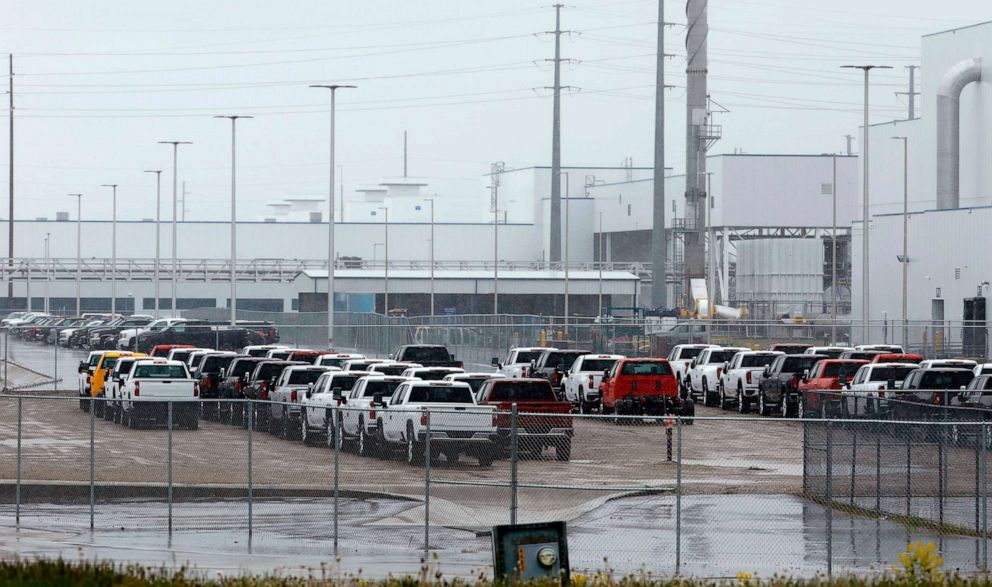
Even premium trucks in the $50,000 to $80,000 range are selling briskly, Brauer pointed out.
Carroll expects more Americans to embrace off-road adventuring, meaning big sales for the Ford Bronco, Jeep Wrangler, Land Rover Defender and other 4X4s.
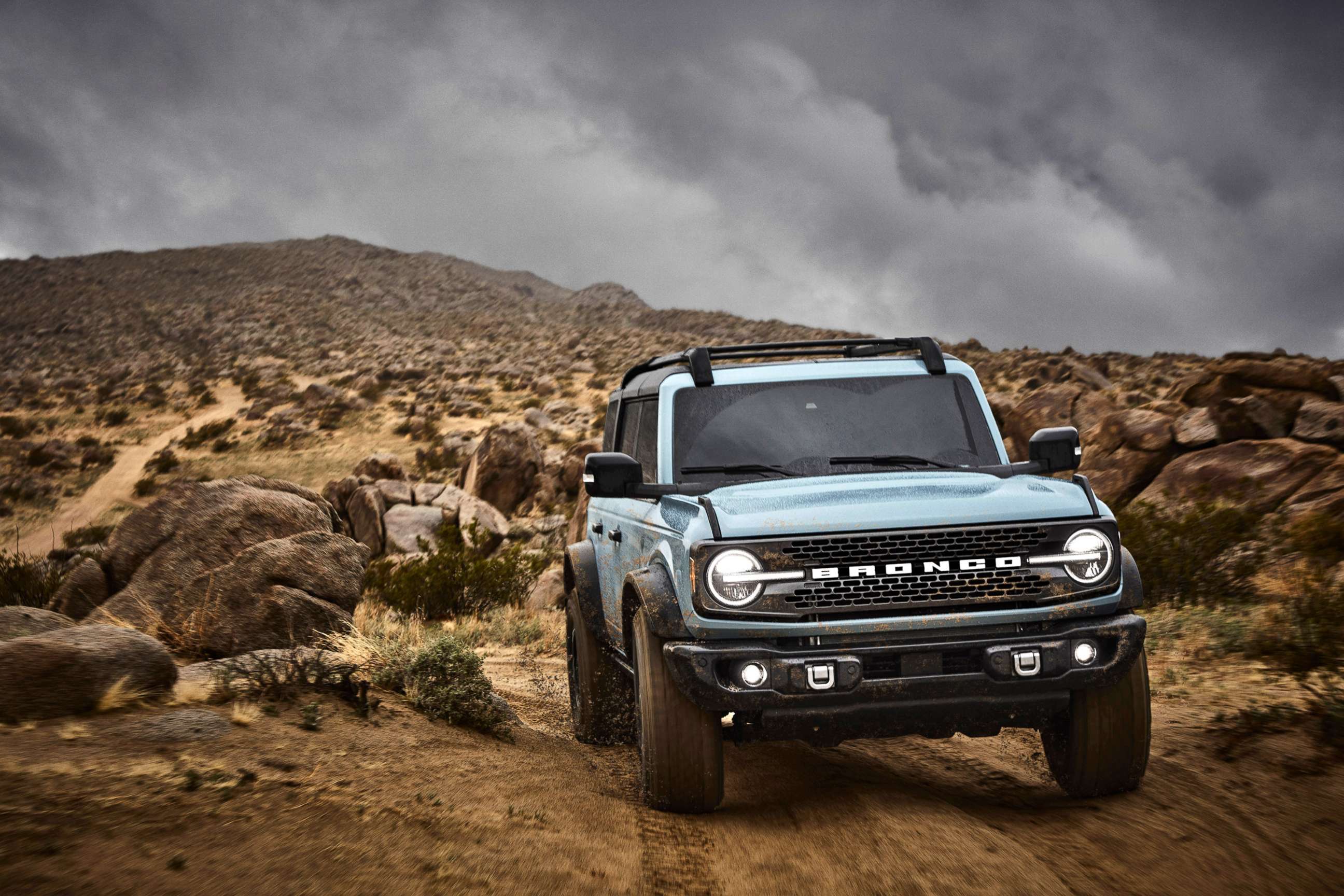
"There were some people who got the 'COVID crazies' and dreamed about outdoor recreation," he said. "The Bronco is the right product at the right time. People gravitate to cars that can be an escape pod in a time of uncertainty."
Trucks and SUVs may be breaking records but Jominy has noticed more winners this year: high-ticket sports cars and opulent British marques. The "premium sports car" and "super premium" segments are up 9% and 10% respectively, according to Jominy's data. Enthusiasts are clamoring for Porsche's enviable 911 sports car and the revamped mid-engine Corvette, he said. The heavenly new Continental GT and Rolls-Royce's lavish Cullinan ute are behind the uptick in sales at these two stalwarts, which are on track to post gains of 60% and 20%.
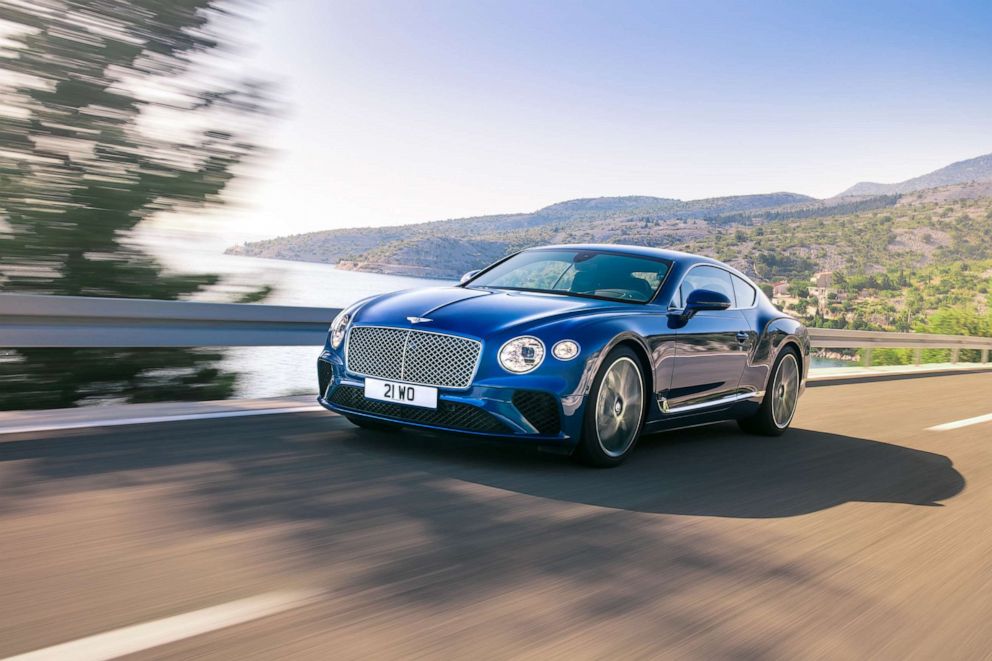
Brauer said muscle cars like the Challenger, Camaro and Mustang are experiencing newfound interest. "They've all gone up in value on the used car market," he said, adding that the reality of the pandemic has shifted consumers' attitudes on "frivolous" toys.
"2020 has been the year of no fun," he said. "People are buying their dream cars."
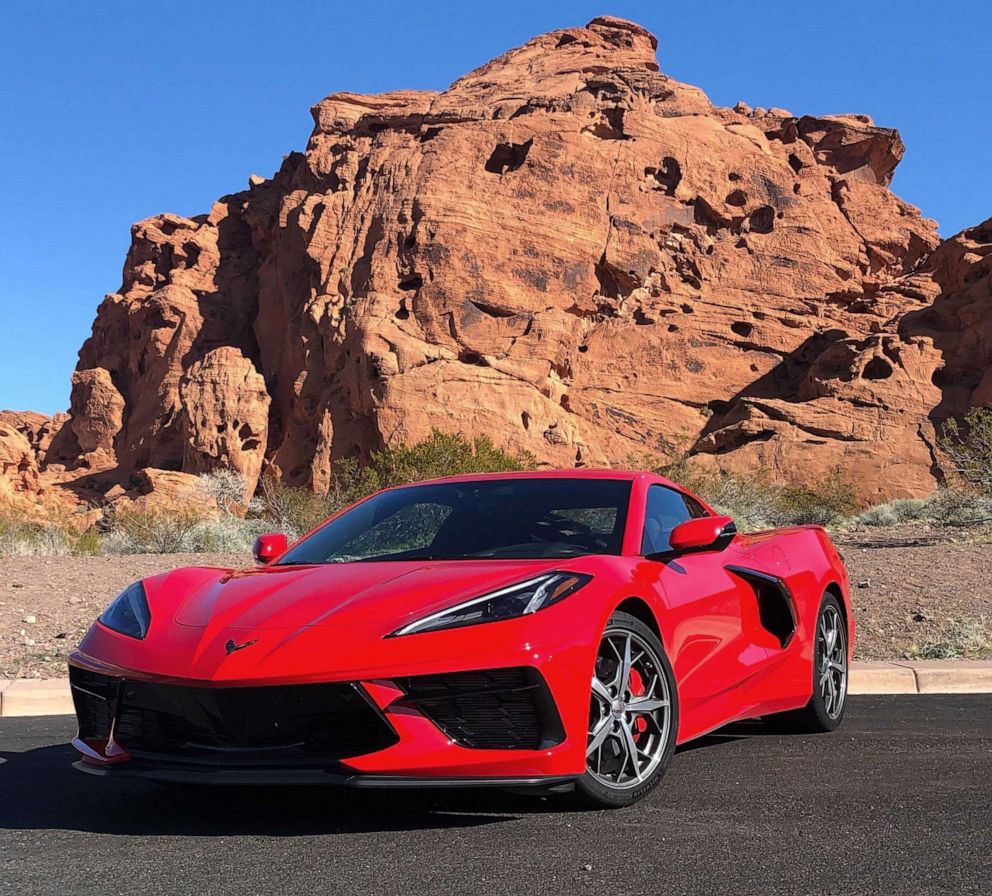
2021 will be electric
Electric vehicles will still be the priority for automakers, with nearly 100 models available in 2021. But the more pressing question is: Will consumers want them in the next 12 months?
"It's a period of wait and see," Carroll said. "EVs are not selling; consumers are not begging for them. Does this massive investment in EVs pay off? Especially in the absence of regulatory pressure? No. It's the biggest bet I have ever seen in the car industry."
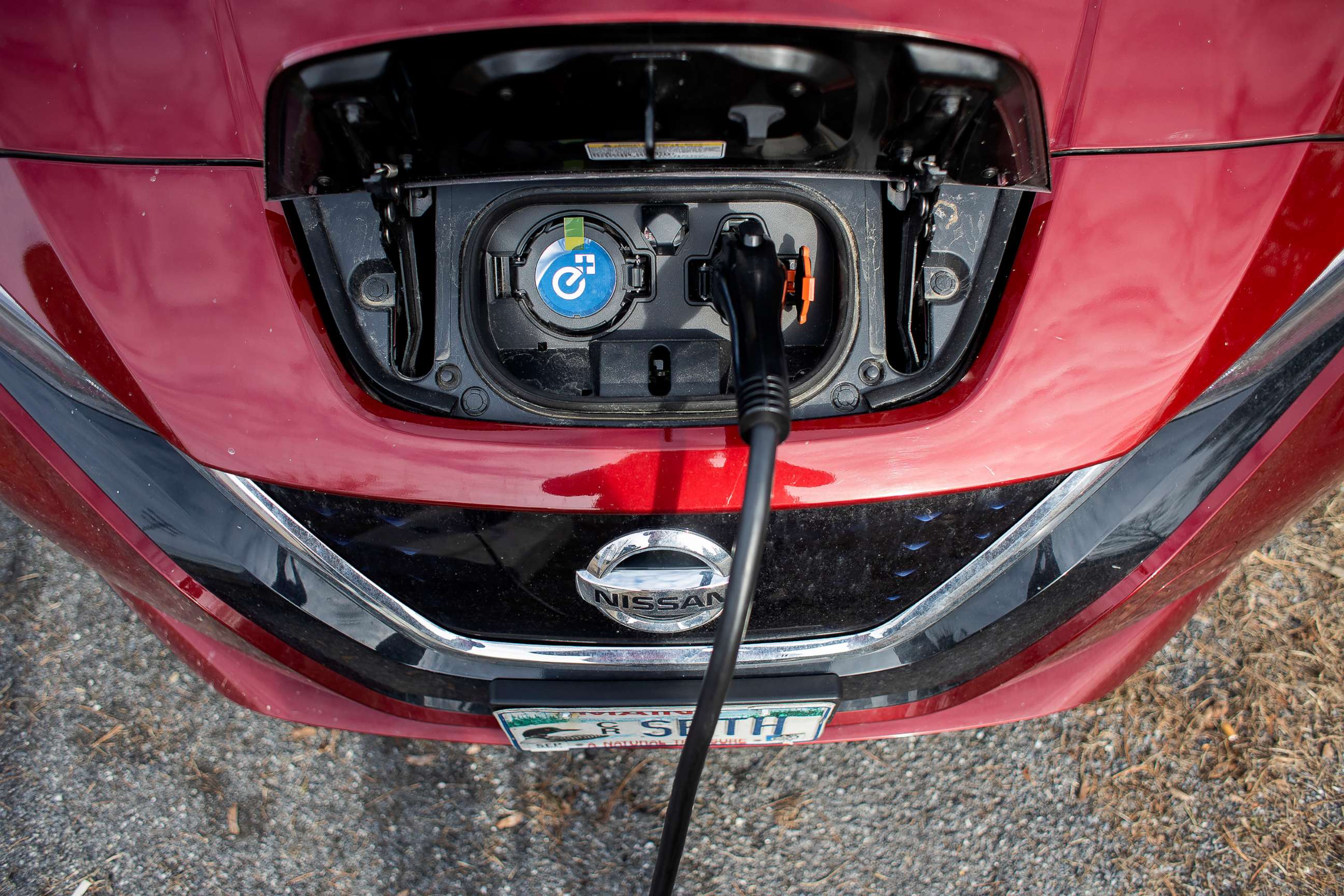
EVs account for 1.7% of the U.S. vehicle market. Traditional automakers, hoping to chip away at Tesla's stronghold, have been ramping up their efforts to compete in the emerging space. General Motors in November said it plans to spend $27 billion on battery-powered and autonomous vehicles and release 30 new EVs globally by 2025. With its forthcoming all-electric Hummer pickup truck and Cadillac LYRIQ, GM could meet its target of 1 million global EV sales in four years. Ford started customer deliveries this month of its all-electric Mustang Mach-E SUV, which has already exceeded sales expectations.
Schuster predicts EV sales to steadily march higher as automakers produce vehicles that Americans actually drive: pickup trucks and crossover SUVs, not compact sedans and hatchbacks.
"EV sales in the U.S. were a little better than the industry overall in October," he noted.
Jonathan Goodman, chief operating officer at Polestar, the Swedish electric performance brand owned by Volvo, said consumers' mindset on these silent vehicles, like his company's minimalist, avant-garde Polestar 2, will change once they're behind the wheel.
"I feel more variety in the marketplace, developing charging infrastructure and next wave of EV tech will drive many more people to go electric in the coming years," he told ABC News.
Car shopping shifts online
The (sometimes unpleasant?) experience of buying a car at a dealership may never be the same again. More consumers are purchasing their vehicles online with little if any help from real-life salespeople. The pandemic forced dealers to be creative, like giving 24-hour vehicle loans to interested buyers.
"COVID really accelerated those digital buying patterns," Chris Sutton, vice president of automotive retail at J.D. Power, told ABC News. "The consumers who went through the [online] process had a good experience."
Sutton said 50% of car buyers in April picked from online inventory, up from 31% in January. Twenty percent got credit approval online in April compared to 9% in January.
Brauer expects online sales to multiply and possibly even replace the arduous in-person process of haggling and negotiating.
"This will keep going. Consumers won't want to go back to dealers," he said.
Schuster agreed. "You can coordinate the purchase without leaving your house. That's appealing to a lot of people. Consumers have become savvier in the buying process in the last few years."
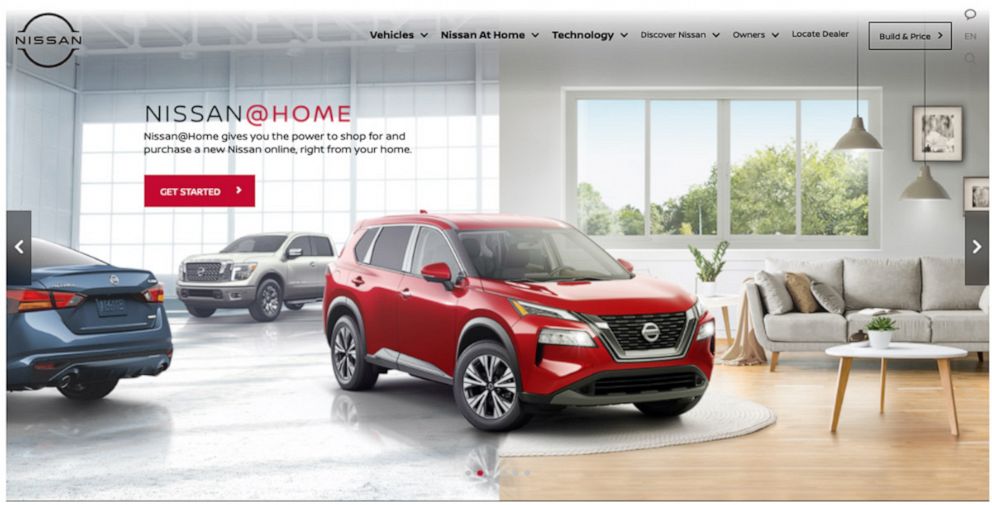
Nissan, for example, recently launched Nissan@Home, an online shopping program that gives customers "the ability to purchase a vehicle on their terms," said Dan Mohnke, vice president of Nissan eCommerce.
"A customer will be able to schedule and complete a test drive, manage the purchase process, take delivery, and handle service needs from a computer, tablet or mobile phone," according to the Japanese carmaker.
The changes that took hold of the industry in 2020 will continue, Schuster said. Plus, the coronavirus vaccines, additional inventory and a new administration will likely benefit the industry further next year, minus a few bumps along the way, he noted.
"I'm looking for industry to continue to recover in 2021," he said. "The total market should be up 8% in 2021 versus 2020."
